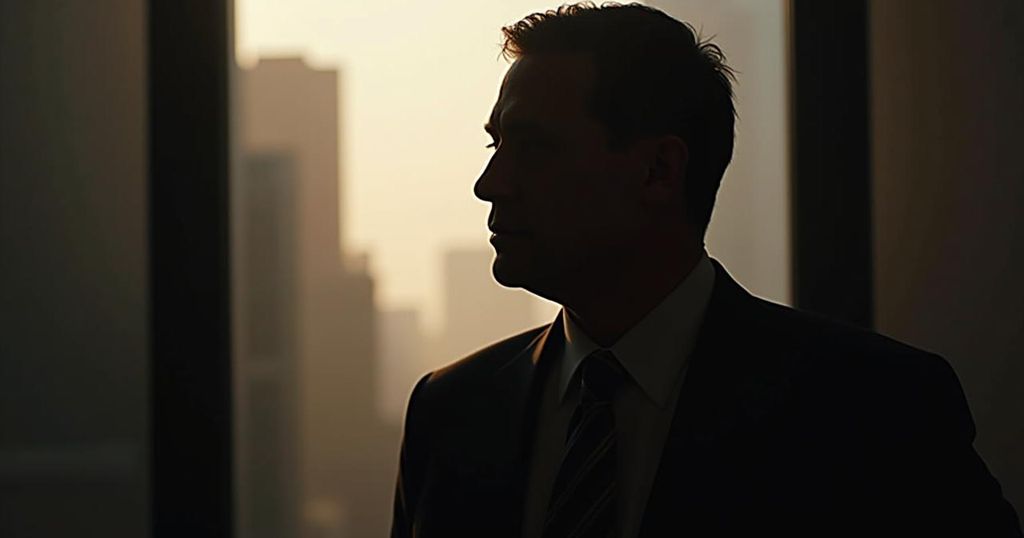Andrew E. Kramer, Kyiv bureau chief for The New York Times, covers the war in Ukraine, reporting on military operations, societal impacts, and the geopolitical implications of the conflict. With extensive experience in the former Soviet Union, he highlights the personal and cultural ramifications of the war while adhering to stringent ethical standards in journalism.
Andrew E. Kramer serves as the Kyiv bureau chief for The New York Times, where he is tasked with covering the ongoing war in Ukraine, described as the largest conflict in Europe since World War II. Together with his dedicated team, Kramer reports extensively on various facets of the war, including military operations, trench warfare, societal and military morale, policy decisions by allied nations, and domestic political dynamics within Ukraine. Since the onset of Russia’s invasion in February 2022, Times journalists have been active on the frontlines, conducting interviews with soldiers, military analysts, and Ukraine’s civil leadership. The coverage is not limited to military engagements; it also explores the cultural and political renaissance occurring within Ukraine amidst the conflict. This resurgence of patriotism is juxtaposed with the profound hardships many Ukrainians face, including the displacement affecting approximately one-quarter of the nation’s population and the pervasive mental health issues stemming from the war. Furthermore, Kramer and his team examine the complex geopolitical implications of the conflict and the evolving security dynamics throughout Eastern Europe. Kramer has spent a significant portion of his career reporting in the former Soviet Union. He joined The New York Times in 2005, covering a broad array of subjects including the oil industry, economic issues, climate change, the rise of authoritarian governance in Russia, and significant events such as the 2014 uprising in Kyiv. Prior to his tenure at The Times, he gained experience at The Washington Post, worked as a freelance reporter for The San Francisco Chronicle, and served as a reporter for The Associated Press in Oregon. In recognition of his journalistic contributions, Kramer was awarded a Pulitzer Prize for international reporting in 2017, shared with colleagues for an investigative series on Russia’s covert actions, and again in 2023 for his reporting on the Russian invasion of Ukraine. Kramer holds a bachelor’s degree in history from the University of California at Santa Cruz and a master’s degree from Oxford University; he was born in Oakland, California. As a representative of The New York Times, Kramer strictly adheres to the ethical standards outlined in the publication’s Ethical Journalism Handbook. Recognizing the unique challenges of war reporting, he exercises utmost caution to avoid compromising the safety of individuals involved in his stories. He refrains from disclosing specific details regarding military operations or positions that could be exploited in hostile actions.
The war in Ukraine, which began with Russia’s invasion in February 2022, has escalated into the largest military conflict in Europe since World War II. The extensive coverage by journalists, particularly those stationed in Ukraine, highlights not only the military engagements but also the broader social, cultural, and psychological impacts on the Ukrainian populace. Given the volatility of the situation, journalistic integrity and ethical considerations are paramount in ensuring that sensitive information does not jeopardize the safety of individuals or operations. Andrew E. Kramer, with his extensive background in reporting in the former Soviet Union, provides critical insights into the war’s ramifications not only on Ukraine but also on the geopolitical landscape in Eastern Europe.
Andrew E. Kramer, as the Kyiv bureau chief for The New York Times, is profoundly engaged in reporting on the multifaceted aspects of the war in Ukraine. His work encompasses not only critical military events but also the societal and cultural reawakening within the country amidst ongoing adversity. Furthermore, he upholds rigorous ethical standards in his reporting to safeguard individuals’ safety while providing comprehensive coverage of a conflict whose implications resonate globally.
Original Source: www.nytimes.com






